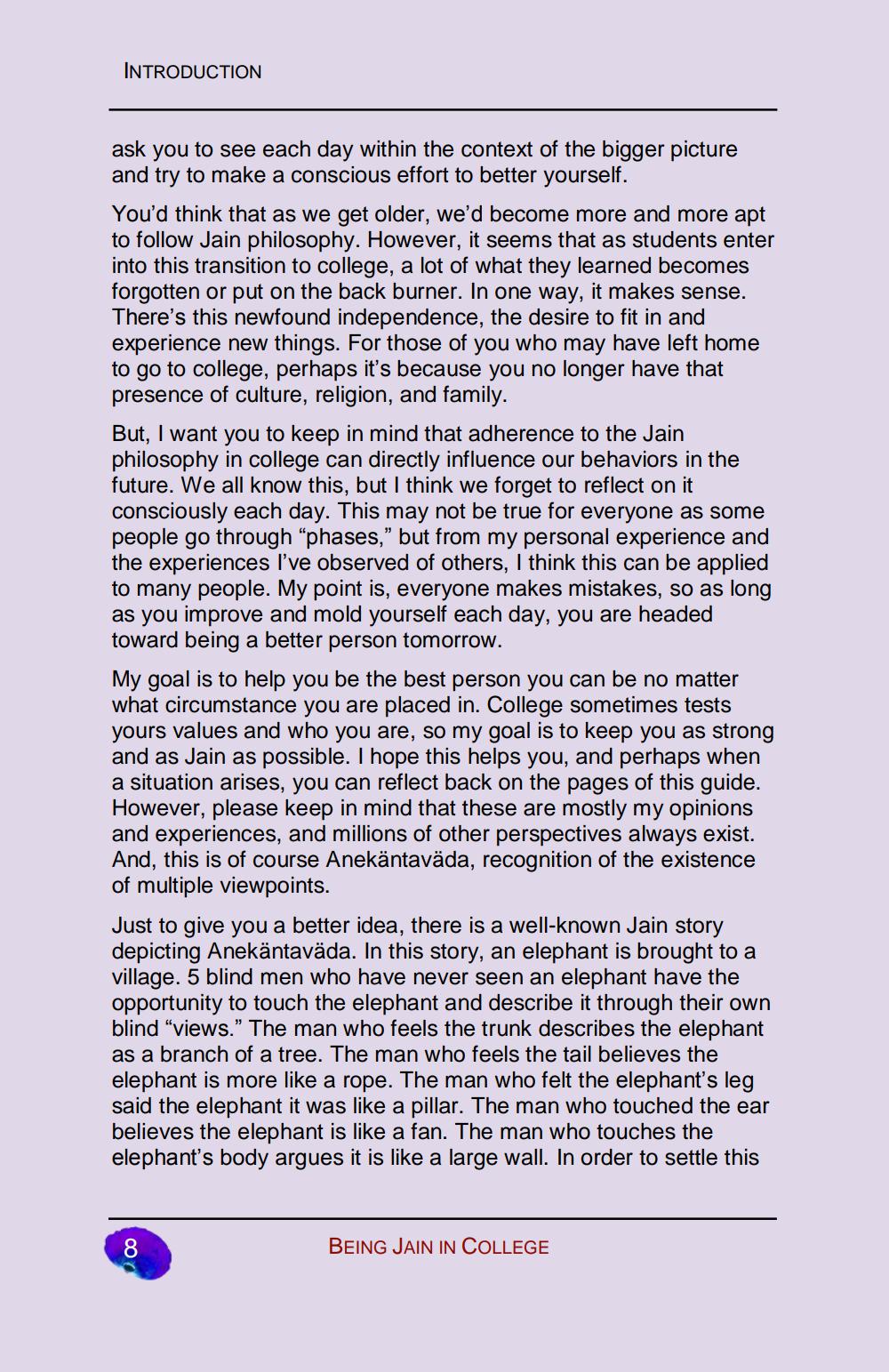Book Title: $JES 983 Being Jain In College An Experiential Guide 2nd Edition Author(s): Sonali Vakharia Publisher: JAINA Education Committee View full book textPage 8
________________ INTRODUCTION ask you to see each day within the context of the bigger picture and try to make a conscious effort to better yourself. You'd think that as we get older, we'd become more and more apt to follow Jain philosophy. However, it seems that as students enter into this transition to college, a lot of what they learned becomes forgotten or put on the back burner. In one way, it makes sense. There's this newfound independence, the desire to fit in and experience new things. For those of you who may have left home to go to college, perhaps it's because you no longer have that presence of culture, religion, and family. But, I want you to keep in mind that adherence to the Jain philosophy in college can directly influence our behaviors in the future. We all know this, but I think we forget to reflect on it consciously each day. This may not be true for everyone as some people go through “phases," but from my personal experience and the experiences I've observed of others, I think this can be applied to many people. My point is, everyone makes mistakes, so as long as you improve and mold yourself each day, you are headed toward being a better person tomorrow. My goal is to help you be the best person you can be no matter what circumstance you are placed in. College sometimes tests yours values and who you are, so my goal is to keep you as strong and as Jain as possible. I hope this helps you, and perhaps when a situation arises, you can reflect back on the pages of this guide. However, please keep in mind that these are mostly my opinions and experiences, and millions of other perspectives always exist. And, this is of course Anekantaväda, recognition of the existence of multiple viewpoints. Just to give you a better idea, there is a well-known Jain story depicting Anekantaväda. In this story, an elephant is brought to a village. 5 blind men who have never seen an elephant have the opportunity to touch the elephant and describe it through their own blind "views." The man who feels the trunk describes the elephant as a branch of a tree. The man who feels the tail believes the elephant is more like a rope. The man who felt the elephant's leg said the elephant it was like a pillar. The man who touched the ear believes the elephant is like a fan. The man who touches the elephant's body argues it is like a large wall. In order to settle this BEING JAIN IN COLLEGEPage Navigation
1 ... 6 7 8 9 10 11 12 13 14 15 16 17 18 19 20 21 22 23 24 25 26 27 28 29 30 31 32 33 34 35 36 37 38 39 40 41 42 43 44 45 46 47 48 49 50 51 52 53 54 55 56 57 58
